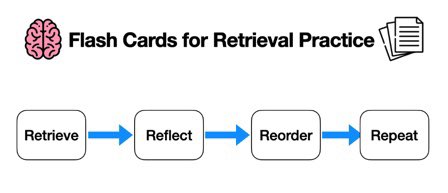Does retrieval practice improve student learning in school and classroom settings? Based on our literature review, our response for researchers and educators is an unequivocal “yes.”
Agarwal et al., (2021)
More meta evidence for Retrieval Practice. A second meta analysis in a week. Retrieval Practice Consistently Benefits Student Learning: a Systematic Review of Applied Research in Schools and Classrooms (2021) have three main aims:
- To focus on evidence from experiments carried out in a classroom context only
- To inform future directions for research on retrieval practice.
- To clarify recommendations for classroom implementation of retrieval practice.
Critically, Agarwal et al., (2021) compared classroom studies only. After screening 2000 abstracts, 50 real world educational settings papers made the cut, 49 effect sizes and a total n = 5374.

- Effect sizes were largest for studies conducted in middle school classrooms. Are these weightier gains arising from the benefits of diagnostic feedback?
- Most common comparison conditions to learners under taking retrieval practice were when students re-read material.
- Mixed findings on timing and delay before the final test.
- Keep retrieval and testing format consistent.
- Unable to code for whether feedback was administered after each initial question, at the end of the quiz, or at the end of the class session, Agarwal et al., (2021) were unable to establish an optimal timing of feedback in school and classroom settings.
Recommendations for Classroom Implementation of Retrieval Practice
We conclude that educators should implement retrieval practice, with less concern about the precise format or timing of retrieval interventions. Almost all effect sizes (46 out of 49 Cohen’s d) indicated a positive benefit from retrieval practice under wide ranging conditions, and retrieval practice improved student learning to a greater extent than time spent on other classroom activities (e.g., reviewing material, lectures without quizzes).
Agarwal et al., (2021)
By implementing retrieval practice in schools and classrooms, scientists and educators can bridge the gap between research and practice, and most importantly, transform students’ long-term learning.
Agarwal et al., (2021)
Listen to Kate Jones talk with Dr. Pooja K Agarwal as they discuss the research, misconceptions and benefits of retrieval practice on Teachers talk radio.
Agarwal, P.K., Nunes, L.D. & Blunt, J.R. Retrieval Practice Consistently Benefits Student Learning: a Systematic Review of Applied Research in Schools and Classrooms. Educ Psychol Rev (2021). https://doi.org/10.1007/s10648-021-09595-9



Pingback: Extending the ‘testing effect’ to self-regulated learning #retrievalpractice – Edventures